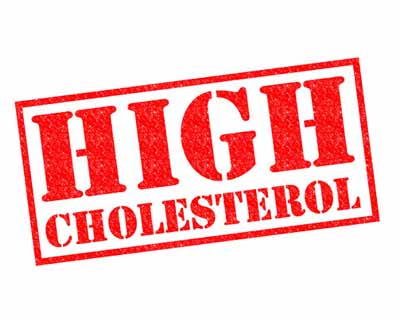- Home
- Editorial
- News
- Practice Guidelines
- Anesthesiology Guidelines
- Cancer Guidelines
- Cardiac Sciences Guidelines
- Critical Care Guidelines
- Dentistry Guidelines
- Dermatology Guidelines
- Diabetes and Endo Guidelines
- Diagnostics Guidelines
- ENT Guidelines
- Featured Practice Guidelines
- Gastroenterology Guidelines
- Geriatrics Guidelines
- Medicine Guidelines
- Nephrology Guidelines
- Neurosciences Guidelines
- Obs and Gynae Guidelines
- Ophthalmology Guidelines
- Orthopaedics Guidelines
- Paediatrics Guidelines
- Psychiatry Guidelines
- Pulmonology Guidelines
- Radiology Guidelines
- Surgery Guidelines
- Urology Guidelines
Link between high-cholesterol diet and colon cancer: UCLA Study

New UCLA research could help explain the link between a high-cholesterol diet and an elevated risk for colon cancer.
In a study of mice, scientists from the David Geffen School of Medicine at UCLAdiscovered that boosting the animals' cholesterol levels spurred intestinal stem cells to divide more quickly, enabling tumors to form 100 times faster. Published online in Cell Stem Cell, the study identifies a molecular pathway that could serve as a new drug target for colon cancer treatment.
"We were excited to find that cholesterol influences the growth of stem cells in the intestines, which in turn accelerates the rate of tumor formation by more than 100-fold," said Dr. Peter Tontonoz, the medical school's Frances and Albert Piansky Professor of Pathology and Laboratory Medicine. "While the connection between dietary cholesterol and colon cancer is well established, no one has previously explained the mechanism behind it."
The scientists increased cholesterol in the intestinal stem cells in some of the mice by introducing more of the substance into their diets. In others, the researchers altered a gene that regulates phospholipids, the primary type of fat in cell membranes, which spurred the cells into producing more cholesterol on their own.
The stem cells' ability to multiply increased in both groups.
As the animals' cholesterol levels rose, their cells divided more rapidly, causing the tissue lining their guts to expand and their intestines to lengthen. These changes significantly sped up the rate of tumor formation in their colons.
The UCLA team will explore whether the molecular pathway they discovered plays a similar role in accelerating the growth of other cancers.

Disclaimer: This site is primarily intended for healthcare professionals. Any content/information on this website does not replace the advice of medical and/or health professionals and should not be construed as medical/diagnostic advice/endorsement or prescription. Use of this site is subject to our terms of use, privacy policy, advertisement policy. © 2020 Minerva Medical Treatment Pvt Ltd